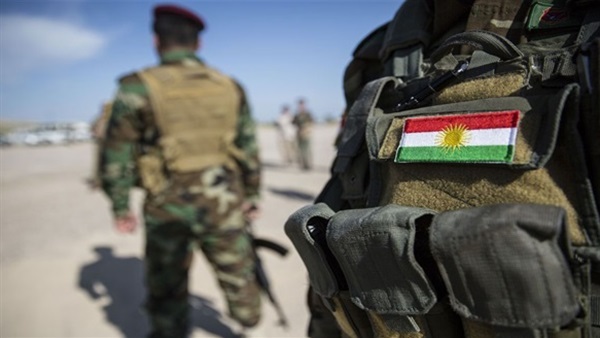Syria-Turkey détente: Kurds between the hammer and the anvil

Kurds are having growing fears in the wake of the failure of Damascus to clarify its position on Turkey's airstrikes against their positions in northern Syria.
These fears are also becoming more intense, with the prospect of rapprochement between Turkey and Syria appearing in the horizon.
Ankara will also most likely stage a ground operation against the Kurds in the areas they control in northern Syria, increasing their fears even more.
Developing relations
Turkey used to be a principal trading and political partner of Syria before the eruption of what came to be known as the 'Arab Spring' in 2011.
Turkish President, Recep Tayyip Erdogan, also used to have cordial relations with Syrian President, Bashar al-Assad.
Nevertheless, these cordial relations turned upside down after the Arab Spring and the eruption of protests against Assad.
The protests prompted Erdogan to call on Assad to introduce political reforms. He then asked the Syrian president to step down to prevent the bloodshed in his country.
In March 2012, Turkey closed its embassy in Damascus, as Erdogan called Assad 'criminal' and 'terrorist'. Assad, for his part, called the Turkish president 'thief' and 'terrorists' supporter'.
Turkey provided support to Syria's political opposition, while Istanbul became the headquarters of the National Coalition of Syrian Revolutionary and Opposition Forces, which contained the most prominent components of the political opposition. It then began supporting armed opposition factions.
Since 2016, Turkey has launched three attacks against Kurdish fighters. These attacks helped it control large swaths of the joint border with Syria. However, it avoided direct confrontations with Damascus until 2020, after a number of Turkish soldiers were killed by Syrian regime forces in the north-western part of Syria. Things then calmed down after Russia intervened.
Relations returning
There are signs of rapprochement between the two parties. In August this year, Turkish Foreign Minister, Mevlüt Çavuşoğlu, called for reconciliation between Assad's regime and the opposition.
He revealed that he had met his Syrian counterpart, Faisal Mekdad, noting that his country supports reconciliation between the Syrian regime and the opposition.
These remarks drew public and political reactions among the Syrian Kurds who expressed fears for the military and political gains they had achieved over the past years in the event that the Turkish and Syrian governments reached a deal.
Hundreds of Kurdish residents of border areas in north-eastern Syria took part in demonstrations against Turkey's threats to launch a military operation against Kurdish-controlled areas. They organized vigils outside the headquarters and military bases of the international coalition and Russian troops in the region.
Turkish offensive
On November 23, Erdogan revealed his intention to meet Assad.
"There is no room for revenge in politics," he said. "At the end, steps are taken under the best conditions."
Meanwhile, Turkish writer, Abdulkader Salfi, suggested the meeting between Assad and Erdogan to take place before Turkish elections which are slated for June 2023.
He wrote in the Turkish daily, Hurriyet, that the meeting may be hosted by Russian President, Vladimir Putin, as Russia plays a key role in achieving rapprochement between its allies who are united by a common enemy: the Kurdish fighters who receive support from the United States.
Kurds
The commander-in-chief of the Syrian Democratic Forces, Mazloum Abdi, has described Syria's position on the Turkish attacks as 'weaker' than ever before.
He added in an interview with AFP that improving relations between Istanbul and Damascus may have a negative impact on the situation of Syria's Kurds.







